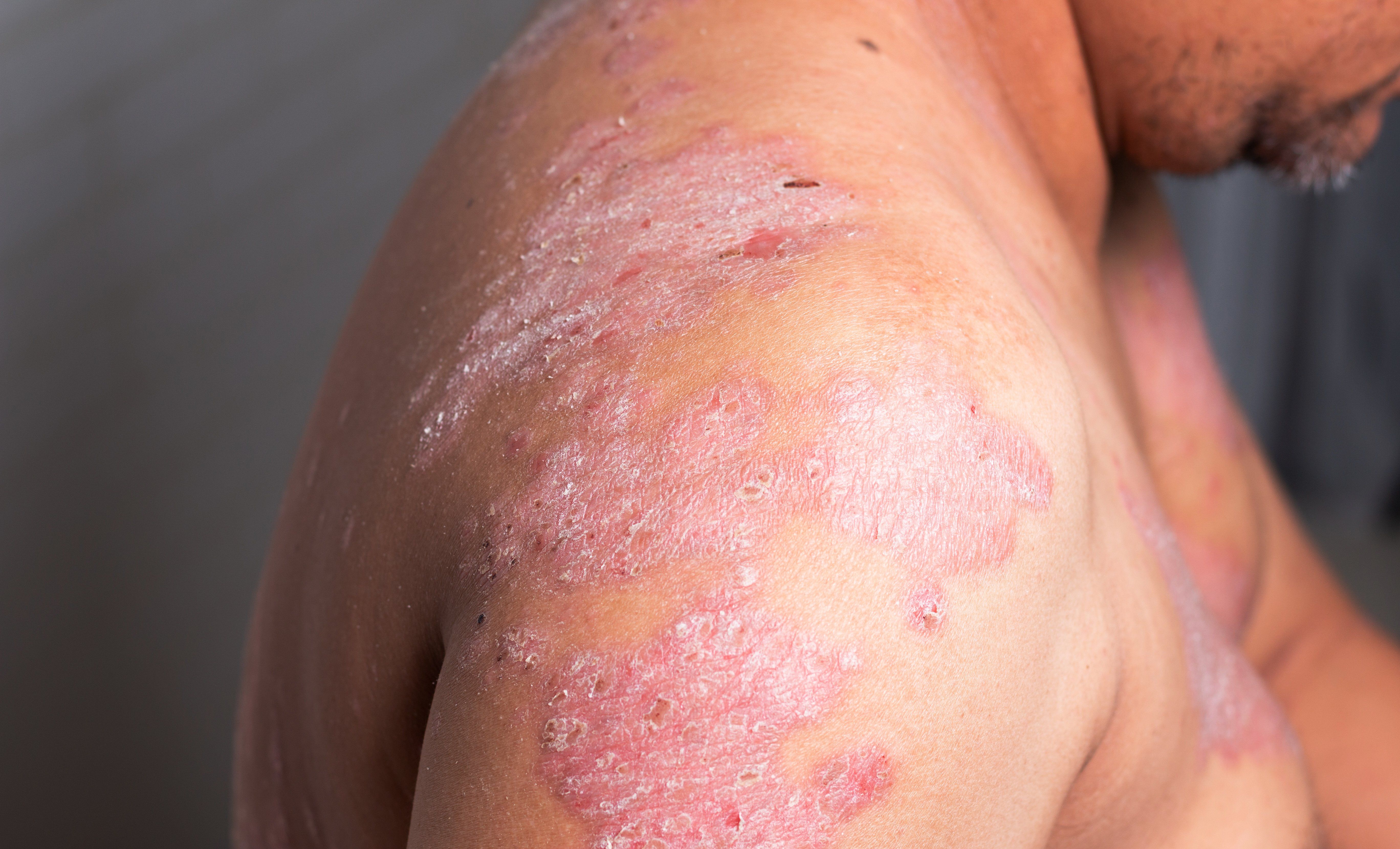- Case-Based Roundtable
- General Dermatology
- Eczema
- Chronic Hand Eczema
- Alopecia
- Aesthetics
- Vitiligo
- COVID-19
- Actinic Keratosis
- Precision Medicine and Biologics
- Rare Disease
- Wound Care
- Rosacea
- Psoriasis
- Psoriatic Arthritis
- Atopic Dermatitis
- Melasma
- NP and PA
- Skin Cancer
- Hidradenitis Suppurativa
- Drug Watch
- Pigmentary Disorders
- Acne
- Pediatric Dermatology
- Practice Management
- Prurigo Nodularis
- Buy-and-Bill
Publication
Article
Dermatology Times
A patient-centered approach to psoriasis treatment
Author(s):
In psoriasis, many therapies offer roughly the same level of care, but that doesn’t mean any patient will respond well to any therapy. According to Mark Lebwohl, M.D., physicians should consider each treatment option in light of a patient's specific comorbidities.
In psoriasis, many therapies offer roughly the same level of care – but that doesn’t mean any patient will respond well to any therapy. Rather, physicians should consider each treatment option in light of each patient's comorbidities. (Nikkikii - stock.adobe.com)

When it comes to treating psoriasis, many therapies exist that offer roughly the same level of care. But that doesn’t mean any patient will respond well to any therapy.
It turns out there are many factors, including other illness or comorbidities, that should be considered when trying to find the right treatment option for a patient.
Mark Lebwohl, M.D., a dermatologist with Mt. Sinai Health System, discussed factors clinicians should consider when treating patients with cardiovascular conditions during the American Academy of Dermatology Spring Meeting in Washington, D.C.
“People always ask which psoriasis drug is my favorite or which is best,” he said. “The truth is, it’s a different drug for different patients because there are a whole range of conditions that we should look for and ask the patient about.”
Certain drug classes could be risky for patients with hypertension, diabetes, a previous history or family history of heart attack or a history of smoking. In particular, Dr. Lebwohl discussed how congestive heart failure and latent tuberculosis (TB) could affect psoriasis drug choice.
For example, he said, dermatologists should consider avoiding TNF blockers for congestive heart failure patients. One infliximab study revealed higher doses of the TNF agent led to more hospitalizations and deaths. Alternately, he said, ustekinumab, methotrexate, apremilast, cyclosporine and acitretin could be good options. However, he cautioned, cyclosporine has been associated with hypertension.
Treating latent TB can also be problematic, he said. Typically, with latent TB, dermatologists can treat patients with prophylactic anti-TB drugs to limit the likelihood the TB would erupt. However, if a TB patient is also on biologic therapy, using a TNF blocker could actually initiate a TB recurrence, as could methotrexate. Instead, consider the interleukin (IL)-17 and IL-23 blockers to avoid a TB relapse, as well as apremilast, cyclosporine and acitretin.
Lebwohl also discussed psoriasis drugs for cancer patients. Individuals with squamous carcinoma or malignant melanoma or lymphoma should not receive TNF blockers as the treatment can increase certain malignancies. Instead, he said, ustekinumab and IL-17 and IL-23 blockers are preferable.
Having this information is critical to providing the best patient care possible, Lebwohl emphasized.
“I hope dermatologists will talk with patients about their symptoms and their comorbidities and apply a greater understanding of which drugs might work best in which circumstances,” he said. “If they don’t, they’ll be relegated to trial-and-error in trying to find the right treatment, and they won’t necessarily be giving the best drug to the patient.”
Reference:
S036 – Psoriasis. “Treatment of psoriasis: Which drug for which patient.” Mark Lebwohl, M.D., 1-4, p.m., March 2. American Academy of Dermatology 2019 Spring Meeting, Washington, D.C..






